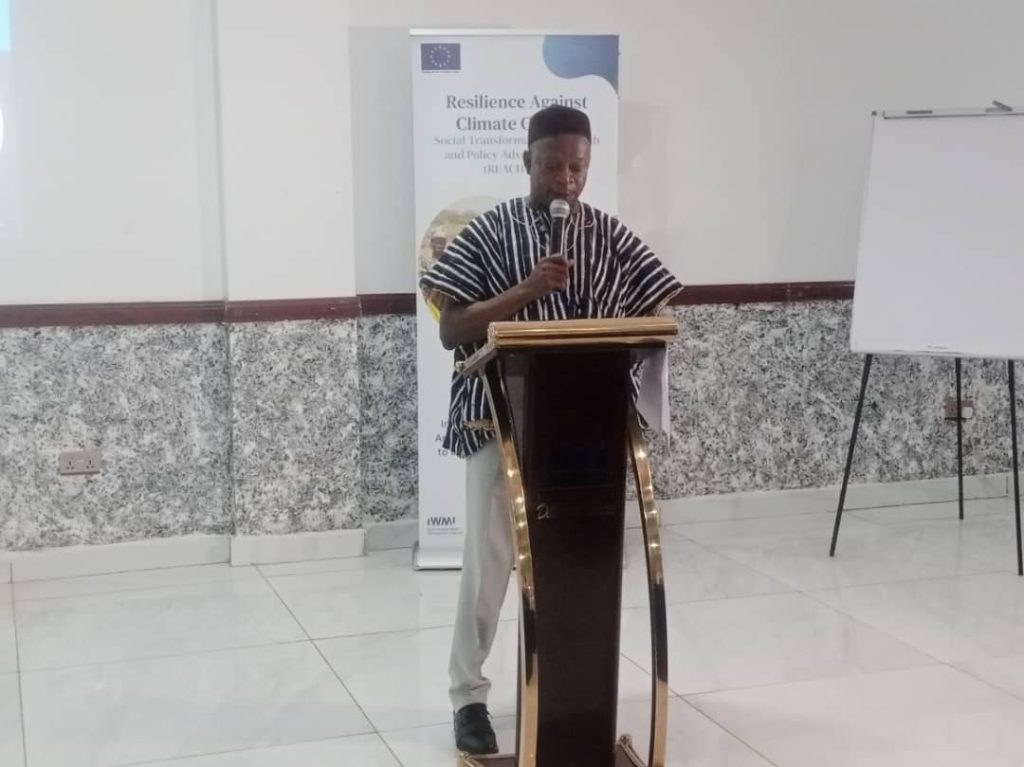By Caesar Abagali
Wa, Oct. 14, GNA – Mr. Stenphen Yakubu, Upper West Regional Minister, has lauded the collaboration between the European Union-funded Resilience Against Climate Change – Social Transformation and Advocacy (REACH-STR) project, for being instrumental in helping address the climate-related challenges in Northern Ghana.
According to him, through such strategic partnership, they could access the much-needed technical support, knowledge sharing, and funding that would strengthen their efforts.
Mr Yakubu said this in a speech read on his behalf by Mr Abugre Joseph Atogyine, the Upper West Regional Coordinating Director, during a stakeholder engagement workshop in Wa on the theme: “Building Resilience Against Climate Change in Northern Ghana through Transformative Development Action.”
He urged development officers not to let their efforts remain only at the collaboration level, but move to work closely with the communities, traditional leaders, civil society organisations, and the private sector to ensure that their actions were inclusive and that no one would be left behind in this transformative journey.
“We must empower our communities to take climate action into their own hands. This means promoting climate education advocating for sustainable practices at the grassroots level, and encouraging community participation in decision-making processes,” he said.
Mr. Yakubu noted that local leadership particularly that of women and youth, should be at the forefront of climate resilience initiatives, adding that, “women, in particular, play a pivotal role in agricultural production and natural resource management, and their contributions must be recognized and supported.”
The Regional Minister expressed excitement that the programme did not just highlight the impacts of climate change but also provided them with tools and resources to enhance their capacities.
“Capacity building is central to resilience. Without the right knowledge, skills and resources, our efforts will remain limited,”, he stated.
Mr. Yakubu noted that it was the duty of the Regional Coordinating Council to ensure that the policies and plans they created were forward-looking, which would require investing in research, data collection, and innovative technologies, that help predict climate trends and assess vulnerabilities.
“It is only with accurate information and evidence-based that we can create effective strategies to combat climate change,” he pointed out.

Dr William Quarmine, Regional Researcher – Development Economist, International Water Management Institute (IWMI), said since the project’s inception in 2019, the project had championed and successfully co-developed social transformation research for development framework and tools among other relevant achievements.
He explained that the social transformation research for development framework was an analytical tool that provided development officers with a better understanding of how societies can be transformed to respond to the practical challenges arising from climate change.
Dr. Quarmine noted that by utilising the framework, planners and decision-makers could develop interventions that encouraged positive societal transformation while minimizing negative consequences.
Mr. Hudu Abu, the Acting Upper West Regional Director of Agriculture, pointed out that the social transformation for development framework was very critical to especially the Metropolitan, Municipal, and District Assemblies (MMDAs) whose mandate is to drive the general development of their district through the planning and implementation of development policies.
Mr. Bilattey Bimi, the Wa East District Planning Officer, affirmed that the social transformation approach/analysis was effective, reduced time and cost in plan preparation and enhanced plan responsiveness and robustness.
GNA